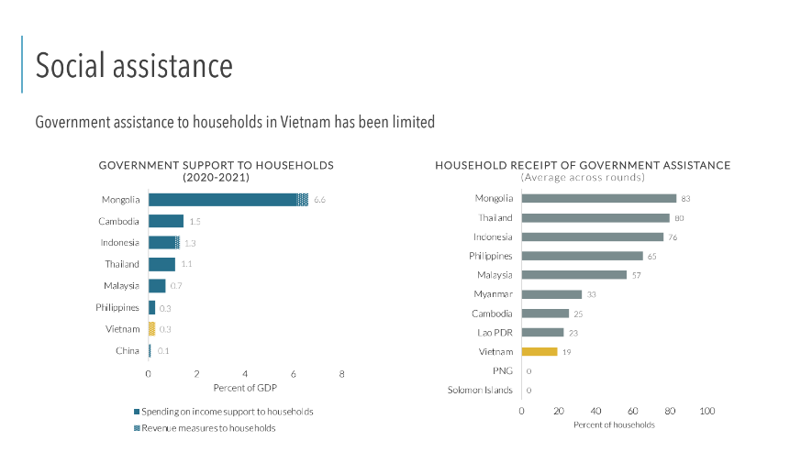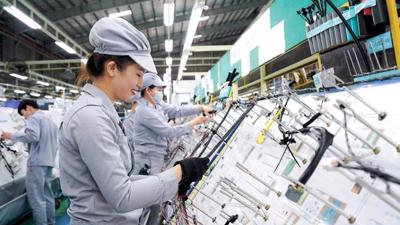Social protection policies in need of further improvement
Many recommendations on Vietnam’s social protection policies were made by World Bank experts during a recent online discussion.

The pandemic has made it quite clear that many households include informal workers, women, the extremely poor, or urban workers and are economically insecure, while social protection policies in Vietnam need to be further improved, World Bank (WB) experts told an online discussion entitled “A year of monitoring the impact of Covid-19 pandemic in Vietnam and Asia” held on October 26.
Vietnam’s social protection policies are considered to be modest, especially in income support for households, despite spending on public infrastructure and support for firms increasing since the pandemic began.
Last year and this year, 0.3 per cent of GDP was provided to households as support, which did not actually include income support. Vietnam has low government assistance to households compared to Pacific Island countries. “Building a protection system that is more agile to respond to shocks like the Covid-19 pandemic may be important for Vietnam,” said Ms. Lydia Kim, Consultant in the East Asia & Pacific (EAP) Poverty and Equity Global Practice of the WB.
Going forward, vaccinations are considered key to securing a healthier population for economic activity to return to normal, but the most important factor is the role of the Vietnamese Government. This role has been seen through a host of activities and support being provided through monetary policy to businesses by the State Bank of Vietnam (SBV). However, in terms of fiscal policy, the government could definitely do much more in terms of social protection elements, according to Ms. Dorsati Madani, Senior Economist at the WB in Vietnam.
Many support programs from the government have been introduced since the pandemic began, but they are considered relatively modest in terms of revenue. According to Ms. Madani, in 2021, the support package from the government was around 2 to 2.5 per cent of GDP. Compared to the rest of the Asia Pacific, this figure is not very high, especially for social protection.
In order for Vietnam to move ahead and become an upper-middle-income economy and a high-income economy in the future, it is important for it to have a system that acts as a social protection system that provides for any part of the population that may unfortunately fall upon hard times because of not only crises like Covid-19 but also health and other issues.
Ms. Madani emphasized that one element that is really important for the country going forward is that the government right now has the fiscal space, as implied by the figure from the Ministry of Finance (MoF) that the debt-to-GDP ratio right now is around 45 per cent, while the limit established by the National Assembly is 60 per cent. “I think there is room for the government to consider larger and more sustained packages to help the economy support the population,” she added.
In addition, to improve the social protection system, it is also necessary to go forward with creating a digital platform where people can be identified and registered quickly for many services. “Digital platforms would facilitate not only identifying the needy in times of crisis but also reach the right people and provide transparency, clarity, and speed,” Ms. Madani said. These elements are going to play a role for the country not only in the short term but also in the medium and long terms, to where Vietnam wants to be five to ten years down the line.
Moreover, it’s also important to look at institutional issues that are holding back investment as well as to reform public investment management, for greater efficiency and transparency. “The funding is there, potentially, but institutional reforms are needed to strengthen the system of the government to modernize it for the future,” Ms. Madani said.







